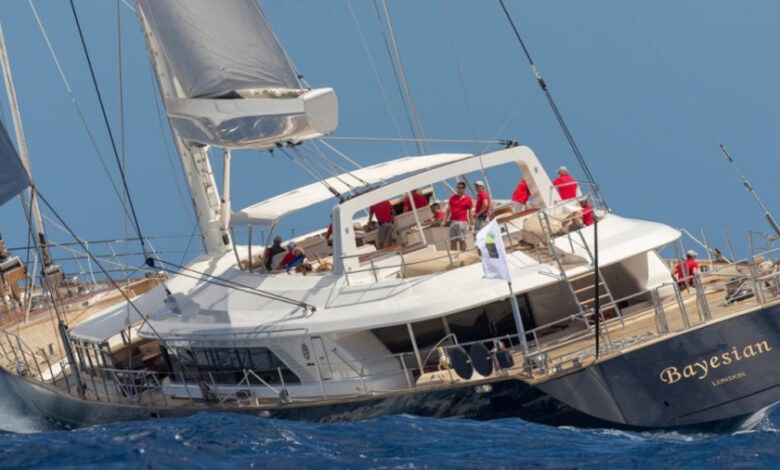The crash of the Bayesian yacht off the coast of Sicily: public reactions in the world

The tragedy that happened off the coast of Sicily shook the public. Three days after the yacht disaster Bayesian near the city of Palermo, hopes that any of the passengers survived were almost dashed. Billionaire Mike Lynch and six other people are among the dead. This event caused various reactions in the media, where important issues of compassion, climate change and the influence of public attitudes on the perception of tragedies are raised.
Italian edition Future draws attention to the difference in the emotional response to tragedies that occur at sea. It is emphasized that the attention of society and the media is concentrated on cases similar to the yacht disaster Bayesian, while the numerous tragedies involving migrants drowning in the same Mediterranean do not receive the same publicity.
“Around the boats with migrants drowning in the sea, there is not so much noise. Sometimes some have had an accident, and sometimes there are others. The emotions that arise are not surprising. … In the sea, you always have to act in this way, you always have to sympathize with those who suffer disaster, it is always necessary to get survivors to land as quickly as possible.
However, unfortunately, these rules of humanity do not apply to everyone. The difference between the well-founded sympathy for the passengers of the yacht and the political, media, one might even say ‘anthropological’ attitude towards those who, in search of a better part, set sail from the southern shores of the Mediterranean Sea – and also suffered a shipwreck” – is striking. are outraged at Avvenire.
It is noted that empathy is often selective, and these rules of humanity, unfortunately, do not always apply to all who find themselves in distress at sea. This contrast in the treatment of different groups of victims reflects not only social, but also political aspects of modern society.
Irish edition Irish Examiner focuses on the impact of climate change on such disasters:
“The water temperature in the Mediterranean Sea has reached 30 degrees, which is three degrees higher than the average. … Among scientists, due to a number of factors, Italy is considered one of the most risky regions of Europe in terms of climatic disasters. …
Over the past three years, the country has experienced major floods, landslides, forest fires, record heat, and the ascent of a glacier in the Dolomites, resulting in the death of eleven mountaineers. In 2023, 378 extreme weather events were noted in the country, which is 22 percent more than in 2022.”
British edition The Independent emphasizes the social reactions accompanying such tragedies:
“The conspiracy theories that began to spread on the Internet show that society no longer even believes in coincidences. Probably, to a certain extent, it is more comforting to believe that some dark forces were at work here. It is easier to accept than to accept that fact , which can sometimes happen – and such terrible accidents as the death of the Bayesian yacht do happen.
And none of us – whether he is rich or poor – is not immune from this. But accidents do happen, and this is the arbitrary and unfair truth of human existence, regardless of how low the probability of the event was on paper. Even if something does not fit in the head and is not understood, it does not mean that there is something different in front of us than what we see.”
Tragedies at sea, regardless of the circumstances, always attract public and media attention, but the degree of this attention often depends on the social status of the victims. In the case of a yacht Bayesian the world saw how selective public sympathy can be, especially when tragedy strikes the wealthy. However, no less important are dozens of other disasters that occur in the Mediterranean Sea, where migrants die trying to find a better life in Europe.
Climate change also plays a significant role in increasing the number of catastrophic events, and this requires greater attention from society and governments. Climate change continues to affect the safety of sea travel, which is becoming a serious challenge for countries located on the shores of the Mediterranean Sea.
In addition, the growing tendency to seek conspiracist explanations of events shows the public’s distrust of accidents and natural disasters. This shows how deeply rooted such sentiments are in modern culture, and emphasizes the need for a critical understanding of information coming from various sources.





